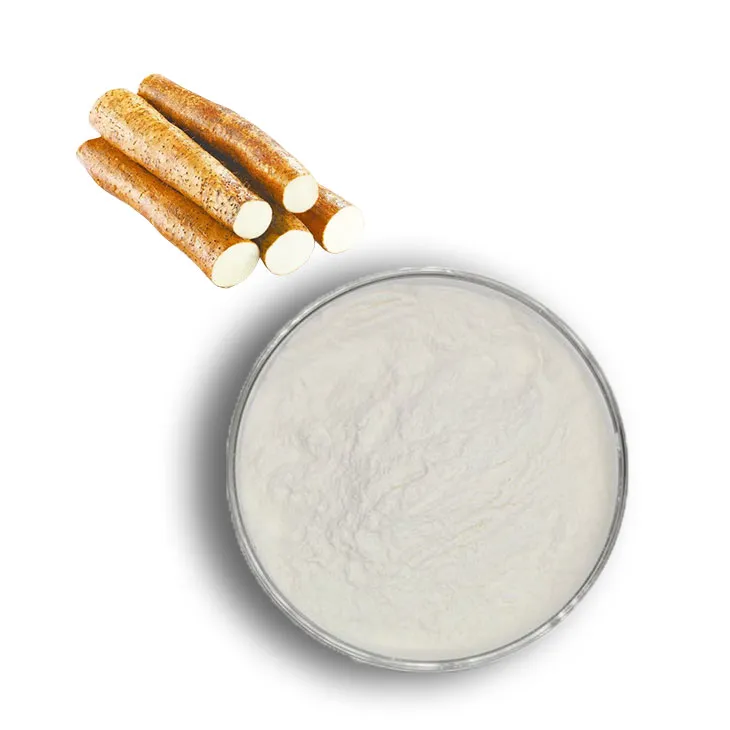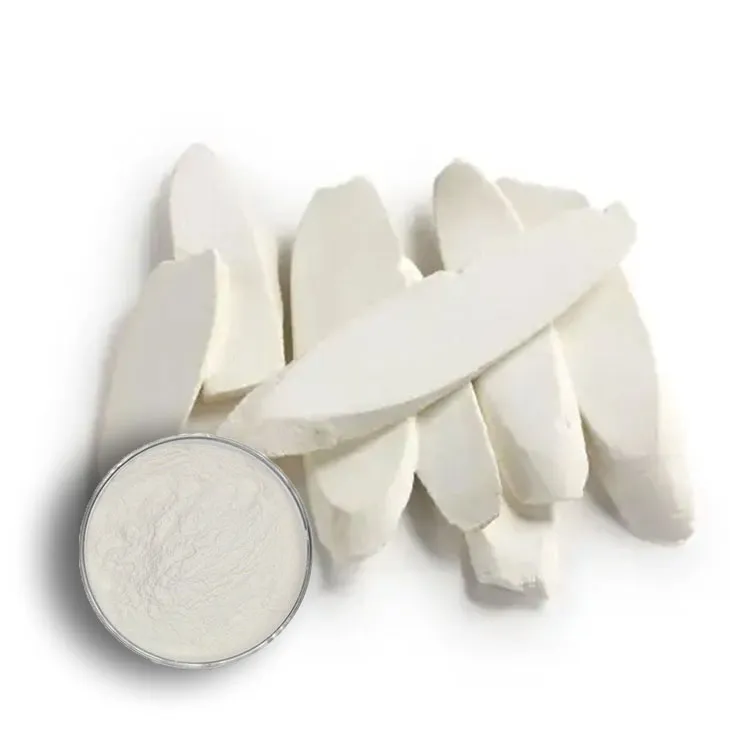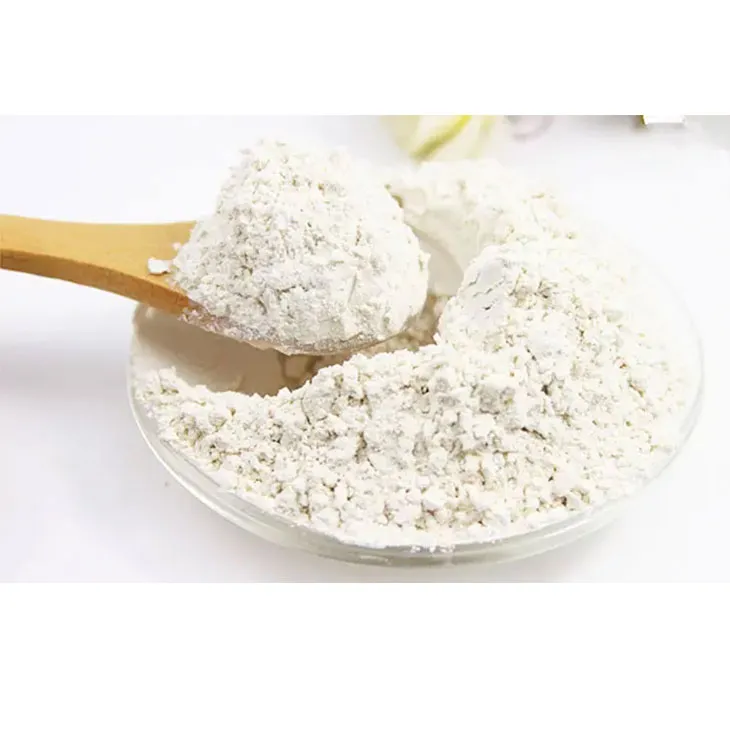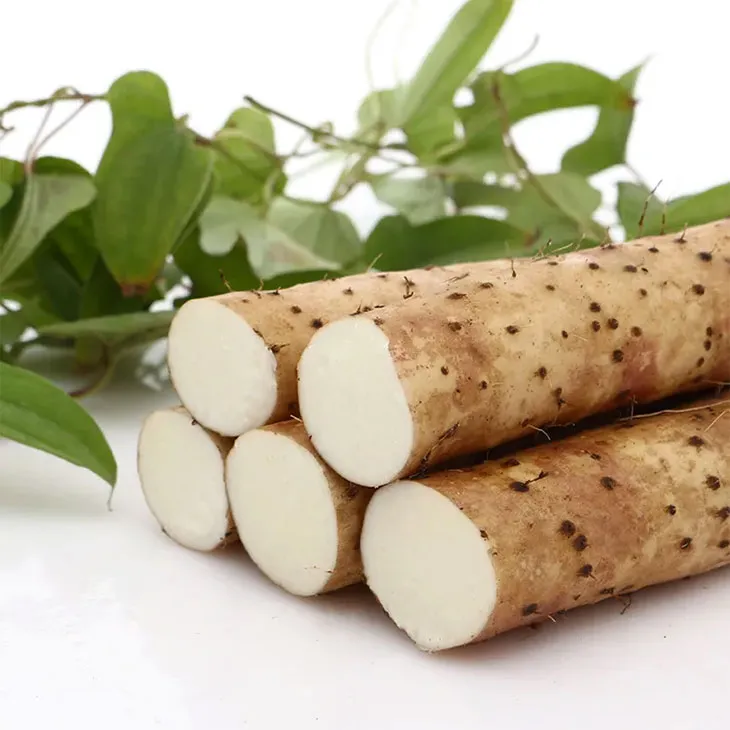- 0086-571-85302990
- sales@greenskybio.com
Yam extract can reduce high blood pressure.
2024-11-13

1. Introduction
High blood pressure, also known as hypertension, is a common and serious health condition that affects a large proportion of the global population. It is a major risk factor for various cardiovascular diseases, such as heart attacks, strokes, and heart failure. Traditional antihypertensive drugs are widely used to manage hypertension, but there is also growing interest in natural products with blood - pressure - lowering effects. Yam Extract has emerged as a potential candidate in this regard. Yams are a staple food in many parts of the world and are rich in various nutrients and bioactive compounds.

2. Bioactive Components in Yam
Yam contains several bioactive components that may contribute to its blood - pressure - lowering effect.
2.1 Diosgenin
Diosgenin is a steroidal saponin found in yams. It has been shown to have multiple biological activities. In the context of blood pressure regulation, diosgenin may act on the renin - angiotensin - aldosterone system (RAAS). The RAAS plays a crucial role in maintaining blood pressure homeostasis. Diosgenin may inhibit the activity of renin or other components of the RAAS, thereby reducing the production of angiotensin II, a potent vasoconstrictor. This leads to relaxation of blood vessels and a decrease in blood pressure.
2.2 Mucilage
Mucilage, a viscous substance present in yams, also has potential benefits for blood pressure. Mucilage can form a gel - like layer in the digestive tract, which may slow down the absorption of carbohydrates and other nutrients. This can help in regulating blood sugar levels, which in turn may have an indirect effect on blood pressure. Additionally, mucilage may have a mild diuretic effect, promoting the excretion of sodium and water from the body. Reducing sodium and water retention can lower blood volume, which is an important factor in blood pressure control.
2.3 Dopamine
Dopamine is another important component in yams. Dopamine has a direct effect on blood vessels. It can act as a vasodilator, relaxing the smooth muscle cells in the walls of blood vessels. By widening the blood vessels, dopamine can reduce the resistance to blood flow, resulting in a decrease in blood pressure. Moreover, dopamine may also influence the function of the sympathetic nervous system, which is involved in blood pressure regulation.

3. Mechanisms of Action
The bioactive components in Yam Extract work through multiple mechanisms to reduce high blood pressure.
3.1 Regulation of the Renin - Angiotensin - Aldosterone System
As mentioned earlier, components like diosgenin can interfere with the RAAS. The RAAS is a complex hormonal system that regulates blood pressure. Renin is an enzyme that is released when blood pressure drops or when the body senses a decrease in sodium levels. Renin acts on angiotensinogen to produce angiotensin I, which is then converted to angiotensin II by the angiotensin - converting enzyme (ACE). Angiotensin II causes blood vessels to constrict and also stimulates the release of aldosterone from the adrenal glands. Aldosterone promotes sodium and water retention in the kidneys. By inhibiting the RAAS, Yam Extract can prevent the excessive constriction of blood vessels and the retention of sodium and water, thus lowering blood pressure.
3.2 Effect on Vascular Endothelial Cells
The bioactive components in yam extract can also affect vascular endothelial cells. These cells line the inner surface of blood vessels and play a crucial role in maintaining vascular health. For example, dopamine can stimulate the production of nitric oxide (NO) in endothelial cells. NO is a powerful vasodilator that helps to relax blood vessels. When the function of endothelial cells is improved, blood vessels can dilate more easily, reducing blood pressure. Additionally, yam extract may help to reduce oxidative stress and inflammation in endothelial cells, which are often associated with endothelial dysfunction and hypertension.
3.3 Modulation of Kidney Function
The kidneys play a central role in blood pressure regulation. Yam extract can modulate kidney function in several ways. Mucilage, with its diuretic effect, can increase the excretion of sodium and water, reducing blood volume. Diosgenin may also have an impact on the reabsorption of sodium in the kidneys. By influencing the balance of sodium and water in the body, yam extract can help to maintain normal blood pressure levels. Moreover, yam extract may protect the kidneys from damage caused by high blood pressure, which in turn can contribute to better blood pressure control.

4. Scientific Evidence
There is scientific evidence from both animal experiments and preliminary human clinical trials to support the blood - pressure - lowering effect of yam extract.
4.1 Animal Experiments
In animal studies, rodents with induced hypertension were treated with yam extract. The results showed that the treatment group had a significant decrease in blood pressure compared to the control group. For example, in a study using hypertensive rats, those fed with a diet containing yam extract had lower systolic and diastolic blood pressures over a period of several weeks. The researchers also observed improvements in other related parameters, such as reduced levels of angiotensin II and aldosterone in the blood, and improved endothelial function in the blood vessels of the treated rats. These findings suggest that yam extract can effectively regulate blood pressure in animals with hypertension.
4.2 Preliminary Human Clinical Trials
Some preliminary human clinical trials have also been conducted. In these trials, participants with mild to moderate hypertension were given yam extract supplements for a certain period. Although the sample sizes in these trials were relatively small, the results were promising. The participants showed a reduction in blood pressure levels, especially in diastolic blood pressure. Some of the participants were able to reduce or even discontinue the use of their conventional antihypertensive medications under the supervision of their doctors. However, more large - scale and long - term clinical trials are needed to further confirm the effectiveness and safety of yam extract in humans.

5. Comparison with Traditional Antihypertensive Drugs
Yam extract has its own characteristics compared with traditional antihypertensive drugs.
5.1 Different Mechanisms of Action
Traditional antihypertensive drugs mainly target specific components of the blood pressure regulation system. For example, ACE inhibitors block the conversion of angiotensin I to angiotensin II, beta - blockers reduce the activity of the sympathetic nervous system, and diuretics promote sodium and water excretion. In contrast, yam extract works through multiple mechanisms, including regulation of the RAAS, effect on vascular endothelial cells, and modulation of kidney function. This multi - faceted approach may provide a more comprehensive way of controlling blood pressure.
5.2 Side Effects
Traditional antihypertensive drugs often have side effects. For example, ACE inhibitors may cause cough, beta - blockers may lead to fatigue and bradycardia, and diuretics may result in electrolyte imbalances. While yam extract is generally considered safe, with few reported side effects in the available studies. However, it should be noted that more research is needed to fully understand the potential side effects of yam extract, especially in long - term use and in different populations.
5.3 Potential for Combined Use
Yam extract has the potential for combined use with traditional antihypertensive drugs. Since yam extract works through different mechanisms, it may complement the effects of traditional drugs. For example, when used in combination with a diuretic, yam extract may enhance the sodium - and water - excreting effect while also providing additional benefits through its effect on endothelial cells. In some cases, the combination may allow for a reduction in the dosage of traditional drugs, thereby potentially reducing their side effects. However, any combined use should be carefully monitored by healthcare professionals to ensure safety and effectiveness.
6. Conclusion
In conclusion, yam extract has shown potential in reducing high blood pressure through its various bioactive components and multiple mechanisms of action. Scientific research, including animal experiments and preliminary human clinical trials, has provided evidence of its blood - pressure - lowering effect. Compared with traditional antihypertensive drugs, yam extract has its own unique features and potential for combined use. However, more research is still needed to fully understand its effectiveness, safety, and optimal dosage in different populations. With further study, yam extract may become an important complementary or alternative option for the management of high blood pressure in the future.
FAQ:
What are the main bioactive components in yam extract related to reducing high blood pressure?
The main bioactive components in yam extract related to reducing high blood pressure are diosgenin, mucilage, and dopamine.
How does yam extract regulate the renin - angiotensin - aldosterone system to reduce blood pressure?
Yam extract may interact with the components of the renin - angiotensin - aldosterone system. For example, it might inhibit the production or activity of renin, which is an enzyme that plays a key role in this system. By influencing this system, it helps in controlling blood pressure.
What is the evidence for yam extract's effect on vascular endothelial cells to lower blood pressure?
Studies have shown that the bioactive components in yam extract can have positive effects on vascular endothelial cells. They may enhance the production of nitric oxide in these cells. Nitric oxide is a vasodilator, which means it can relax blood vessels and thus reduce blood pressure.
How does yam extract modulate kidney function for blood pressure reduction?
Yam extract may influence the kidney's role in fluid and electrolyte balance. It could potentially affect the reabsorption and excretion of sodium and water in the kidneys. By promoting proper fluid and electrolyte balance, it can contribute to blood pressure reduction.
Can yam extract be used alone as an antihypertensive treatment?
While yam extract has shown blood - pressure - lowering effects, it may not be sufficient to be used alone as a sole antihypertensive treatment for most cases. However, it could potentially be part of a comprehensive approach to blood pressure management, especially in combination with other lifestyle modifications or medications.
Related literature
- The Antihypertensive Effects of Yam Extract: A Review of Mechanisms and Evidence"
- "Yam - Derived Bioactive Compounds and Their Impact on Cardiovascular Health"
- "Evaluating the Potential of Yam Extract in Blood Pressure Regulation: Recent Research Findings"
- ▶ Hesperidin
- ▶ citrus bioflavonoids
- ▶ plant extract
- ▶ lycopene
- ▶ Diosmin
- ▶ Grape seed extract
- ▶ Sea buckthorn Juice Powder
- ▶ Beetroot powder
- ▶ Hops Extract
- ▶ Artichoke Extract
- ▶ Reishi mushroom extract
- ▶ Astaxanthin
- ▶ Green Tea Extract
- ▶ Curcumin Extract
- ▶ Horse Chestnut Extract
- ▶ Other Problems
- ▶ Boswellia Serrata Extract
- ▶ Resveratrol Extract
- ▶ Marigold Extract
- ▶ Grape Leaf Extract
- ▶ blog3
- ▶ blog4
- ▶ blog5
-
Organic Tongkat Ali extract powder factory.
2024-11-13
-
How to make powder with ashwagandha extract.
2024-11-13
-
Rosehip extract manufacturers from China.
2024-11-13
-
The best cat's claw extract in nature.
2024-11-13
-
Chinese Dandelion Leaf Extract Suppliers.
2024-11-13
-
Reishi mushroom extract
2024-11-13
-
Centella Asiatica Extract
2024-11-13
-
Yohimbine Bark Extract
2024-11-13
-
Green coffee bean Extract
2024-11-13
-
Lycopene
2024-11-13
-
Coconut Water Powder
2024-11-13
-
Garcinia Cambogia Extract
2024-11-13
-
Beetroot juice Powder
2024-11-13
-
Red Vine Extract
2024-11-13
-
Cocoa Extract
2024-11-13





















